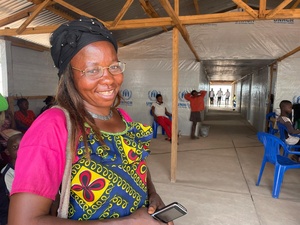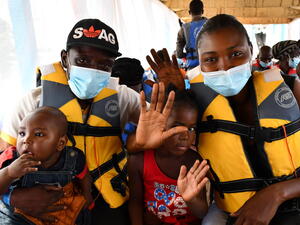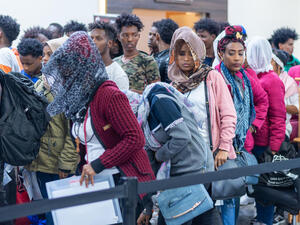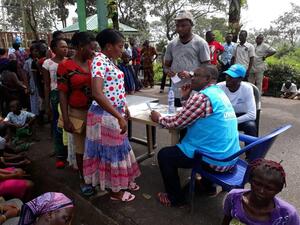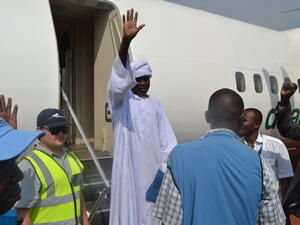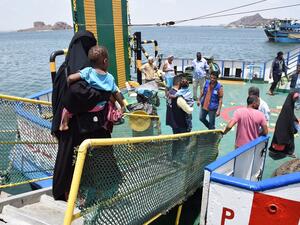Congolese returns resume as refugee status in Gabon nears end
Congolese returns resume as refugee status in Gabon nears end
In Gabon, we are working with the government to help find solutions for the last remaining Congolese refugees before their refugee status comes to an end on Sunday.
The cessation clause will apply to some 9,500 Congolese refugees and asylum-seekers living in Gabon today. They are among nearly 20,000 people who had fled civil conflict in the Republic of Congo between 1997 and 2003, and sought asylum in neighbouring Gabon. About half this number returned home in the ensuing years.
In January this year the government of Gabon announced its plan to declare the end of refugee status for Congolese nationals on its territory. The authorities consider that these refugees can now return safely to their home country and has called upon them to do. The option was also made available for those who wished to remain in Gabon to apply for residence permits according to the provisions and conditions provided for in Gabonese law. Those who are successful in obtaining these permits would remain in Gabon as regular migrants and would no longer be refugees.
Some 450 refugees have signed up for repatriation over the past 10 days. More continue to do so as joint mobile teams from UNHCR, the National Commission for Refugees and the Gabonese Red Cross reach out to them across Gabon to register their preferred options and assist them accordingly.
One return convoy is leaving today, and three more convoys will follow by next Friday. Last week, 51 refugees went home from southern Gabon and were welcomed at the border crossing by UNHCR teams. We have established a presence in Dolisie and Pointe-Noire in the Republic of Congo's areas of return in order to better monitor the conditions and to help returnees reintegrate in their villages of origin.
To date, over 1,000 Congolese refugees have applied for the residence permit to stay in Gabon and 217 have been granted the card in Libreville, the capital, where the General Directorate of Documentation and Immigration (DGDI) has been delivering an average of 40 cards daily. Mobile immigration teams are processing another 60 per day in the rest of the country. UNHCR helps refugees to get a residence permit by paying the 150,000 CFA (USD 300) administrative fee required per refugee.
UNHCR is pleased by measures taken by the Gabonese authorities to keep immigration officials informed of the new procedures, particularly their assurances that there would be no arrests made after the cessation clauses come into effect on 31 July. These steps will allow refugees, beyond that date, to continue to apply for residency, seek exemption from the application of the cessation clauses, or to repatriate. We are working very closely with the respective Gabonese authorities to implementat these transitional procedures.
The last cessation clause declared in Africa was on 31 December 2008 for Sierra Leonean refugees. They returned en masse after the country regained stability following 11 years of one of the most brutal civil wars.
For further information on this topic, please contact:
-
In Geneva: Fatoumata Lejeune-Kaba on mobile: +41 79 249 3483
-
On mission in Gabon: Céline Schmitt on mobile: +241 04 15 42 17 or +243 81 700 94 84


